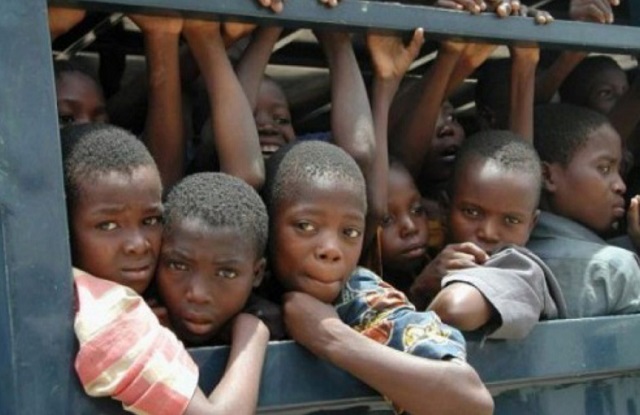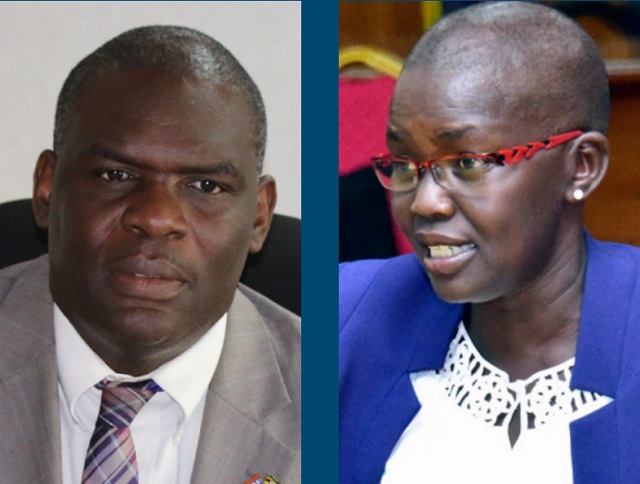
Prosecutors cry out for resources to tackle the vice
Kampala, Uganda | IAN KATUSIIME | Uganda is unique in the human trafficking matrix because it is a “source, transit and destination” for traffickers, says Tyler Dunman who works with The Human Trafficking Institute, an American NGO that empowers police and prosecutors to stop trafficking.
Partly as a result, Uganda remains on the Tier 2 Watch List compiled by the U.S. government for the second consecutive year for not fully meeting the minimum standards for the elimination of trafficking.
The U.S. State Department’s Office to Monitor and Combat Trafficking in Persons publishes the annual report to address and educate others on the international advancements on human trafficking.
The latest report indicated that the absence of victim-witness protection legislation and a protection program instead hindered some investigations and prosecutions. It added that human traffickers would threaten and blackmail victims and witnesses to discourage their participation in trials.
Dunman says part of Uganda’s uniqueness is its push and pull factors that also enable many types of exploitation.
Dunman’s organisation works with prosecutors for prosecution-guided investigations and he is currently embedded in Office of the Director of Public Prosecutions (ODPP) as a Special Counsel. But he and others in the ODPP say it is handicapped because the human trafficking vice is an acquisitive crime that is trans-boundary in nature, and involves crossing of different jurisdictions rendering mutual legal assistance difficult.
Interviews conducted by The Independent with various officials in the ODPP on the sidelines of the National Prosecutors Symposium held from April 25-28 at Imperial Royale Hotel in Kampala revealed a panoply of other problems the ODPP faces, including insufficient resources and training and the extensive criminal syndicate behind human trafficking in Uganda and beyond.
The symposium was held under the theme “Human and Wildlife security for Sustainable Development”
Dunman said lack of financial resources from the government of Uganda hinders initiatives like victim support. He adds that prosecution faces difficulties when there is a trafficking case of Ugandans who have travelled abroad and most of the evidence is in a foreign jurisdiction. He says building regional coordination teams for shared intelligence and putting together agreements with foreign governments is needed.
Amidst the Herculean task of prosecuting human trafficking, the government lawyers have always lamented about poor pay.
Earlier, in her remarks at the symposium, Jane Frances Abodo, the Director of Public Prosecutions (DPP) had already painted a gloomy picture of the conditions her staff members work in. She said they need better office space.
She said the ODPP has 590 staff, 323 of whom are prosecutors grouped under specialised departments and divisions to deal with the emerging complex and dynamic criminal landscape, including human trafficking.
“The Police, judiciary, prisons, and army have training academies. How can the prosecutors not have a home?”
In the same week of the symposium, at a meeting with President Yoweri Museveni at the Joan Kagezi Memorial Lecture held at Kampala Serena Hotel, DPP Abodo reminded the head of state about a pledge he made to increase their pay.

Most vulnerable
Labour export companies based in Uganda and backed by the government are part of the supply chain to entities in need of domestic workers. People flocking to the Middle East are the most vulnerable victims. Many of the fortune-seekers end up in hands of trafficking rings and some of the companies, such as Spotlight International Recruitment Agency Limited and Middle East Consultants, have been blacklisted by the Ministry of Gender, Labour and social development, but many others are thriving in the trade.
Airports like Entebbe International Airport and Jommo Kenyatta International Airport (JKIA), have been cited as hubs of trafficking rings with aviation security bigwigs cited as supervisors of the trafficking. They reportedly pass-on tips on how to avoid detection while in transit by, for example, breaking up in huddles so as to avoid being detected.
People familiar with workings of labour export companies talk of a sheltering centre in Jinja district where girls who intend to work in Arab nations are trained on how to conduct themselves, they undergo two medical check-ups and are kept in house for a period of two weeks. It is akin to boot camp. The two week ‘detention’ is meant to avoid any eventualities like contraction of diseases or last minute pulling out when the company has already incurred expenses on those headed for work.
In spite of the widely reported cases in the media of Ugandans who are killed in Arab nations like Saudi Arabia Yemen, Oman, Kuwait; a lot more Ugandans are willing to travel for work because of the multitudes of Ugandans who come back from these nations with success stories. This is after say, acquiring money to build a house, paying school fees.
During a national consultative policy workshop for the ODPP held in January 2020 at Imperial Royale Hotel, The Independent asked then-outgoing DPP Mike Chibita about what the office was doing to curb the problem in light of a growing body of evidence against labour export companies which have been cited as complicit in the inhumane treatment of Ugandans who go to work abroad. His response highlighted the limitations of his office.
“You are approaching it from the wrong perspective. These Ugandans sign contracts with these companies. We cannot come in when there is a valid contract between these two entities,” Chibita answered.
Efforts being made
Uganda’s challenges with law enforcement and prosecution have been documented elsewhere and, in spite of its problems, Uganda has been making significant efforts to fight trafficking. The progress for Ugandan authorities has been staggered.
In 2009, Uganda enacted the Prevention of Trafficking in Persons Act. To operationalise this, the government went ahead and established the Coordination Office for Prevention of Trafficking in Persons (COPTIP) at the Ministry of Internal Affairs Headquarters. These efforts included spotting and rescuing more victims in transit and signing the National Referral Guidelines for Management of Victims of Trafficking in Uganda (NRG).
Due to the gaps in enforcement against the crime of human trafficking in Uganda, agencies like United Nations Office on Drug and Crime (UNODC) have stepped in to bolster the efforts of Ugandan authorities with training on new skills for Ugandan prosecutors, police, and airport officers to tackle the issue under a program called Better Migration Management.
Some of the trainings have been prepared with a victim centred approach as the lack of empathy during prosecution has been a stumbling block in handling many cases.
Joe Kizito, the Chief State Attorney in Mbale, says the human trafficking problem is wide in his precinct being a border area. He says in 2019 when he underwent training for prosecutors on curbing trafficking in persons, the theme was the same: victim-centered approach.
The training was conducted by Intergovernmental Authority on Development (IGAD) in Mombasa, Kenya. “Whatever you do, focus on the victim, we were told. Many times we traumatise the victims.”
A 2021 Trafficking- in-persons Report for Uganda compiled by the U.S. government, however, noted how judicial officers often encouraged trafficking victims to participate in the investigation and prosecution of their traffickers to prevent the victimisation of others. But, some reports indicated, the law enforcement’s limited capacity and inadequate sensitivity in engaging trafficking victims discouraged many from cooperating in investigations.
Dunman remains upbeat about the progress they are making in spite of the uphill task at hand.
“There has been a 500% increase of trafficking-in-persons cases filed by the DPP,” he told The Independent.
****
 The Independent Uganda: You get the Truth we Pay the Price
The Independent Uganda: You get the Truth we Pay the Price



